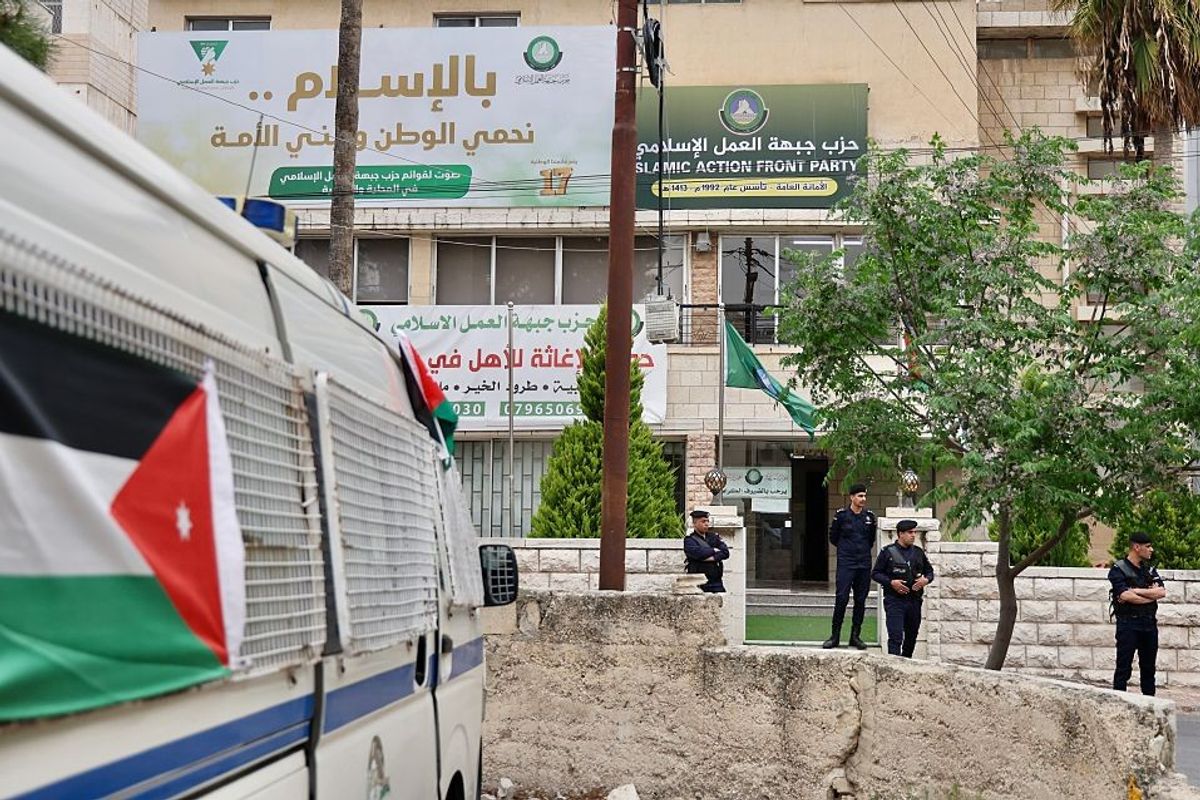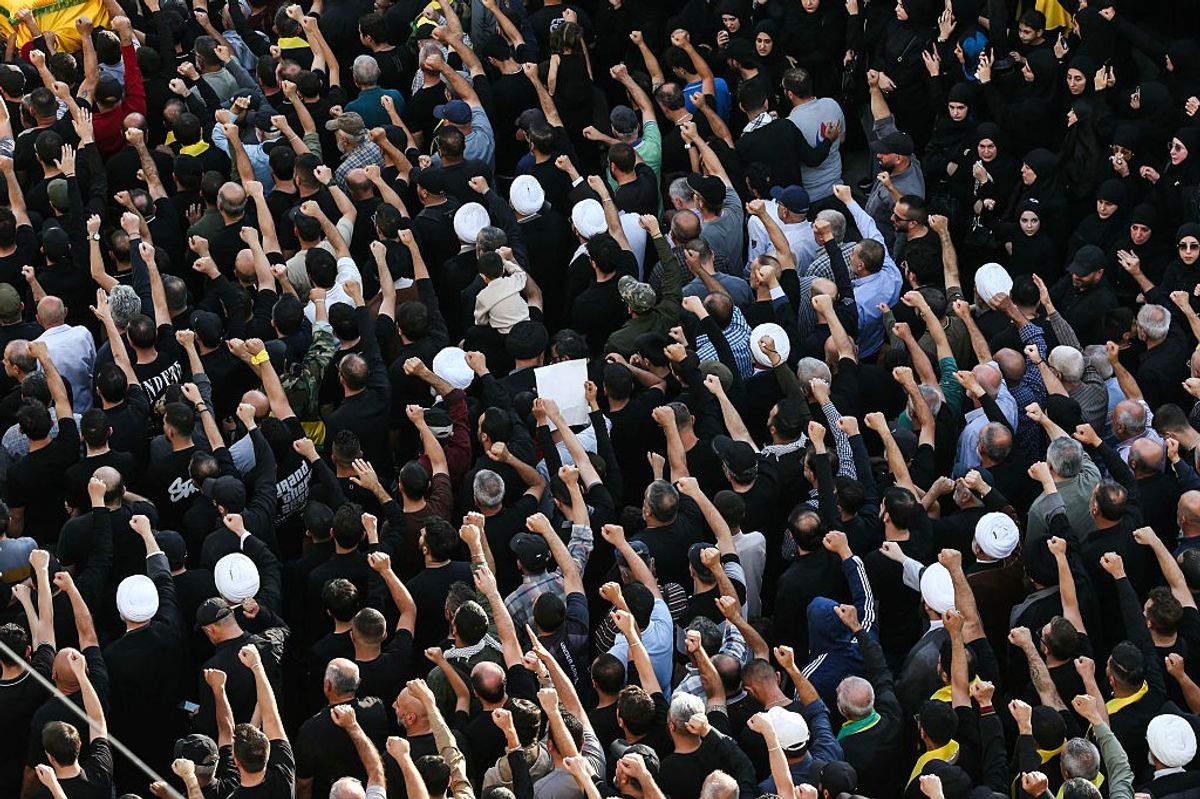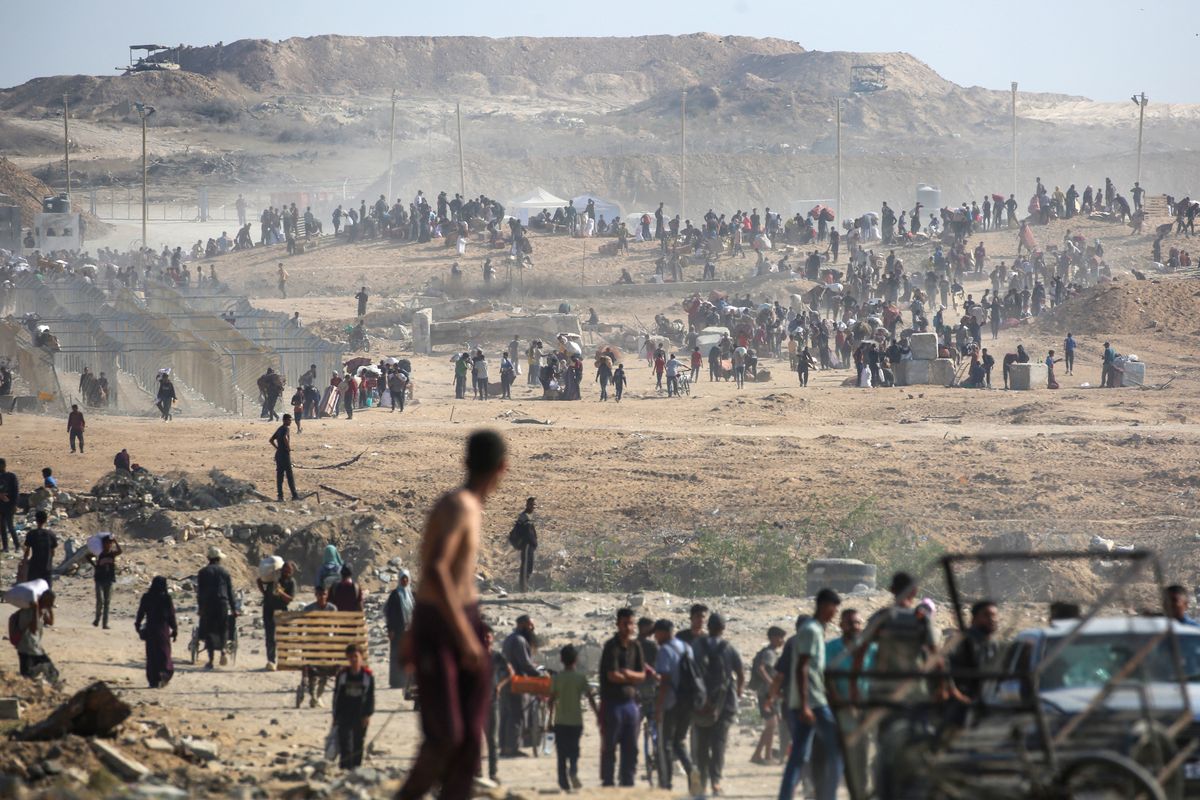SUBSCRIBER+EXCLUSIVE REPORTING — Saturday’s raid that freed four hostages brought Israel a rare moment to celebrate—for families that had lost faith that the captives would come home, for a government lambasted for its failures to free them, and for a military that had drawn criticism but was now being showered with praise for a daring and successful mission.
But the rescues may also have set back efforts to reach a cease-fire agreement and bring the remaining hostages home. That’s because many analysts believe the raid will embolden the Israeli government to hold to its hard line in negotiations, and drive Hamas to demand an end to the war before freeing any more captives.
On Sunday, the Washington Post editorial board wrote that the raid “might harden both sides’ positions, by making Mr. Netanyahu confident of military victory and Hamas determined to avenge an embarrassing defeat.”
“Any release from captivity to freedom opens the universe's deepest wellsprings of joy,” Israeli columnist Odeh Bisharat wrote in Ha’aretz. But he said Netanyahu and his government were even more fixated now on a policy that “is always one of force. After all, for months now, proposals for an exchange of prisoners and hostages have been on the table, but Israel has refused. That's because the man who makes the decisions here, Prime Minister Benjamin Netanyahu, has an interest in continuing the war.”
The rescue operation was carried out in broad daylight by the Israeli Police’s Special Anti-Terror Unit, the Shin Bet security service and the Israel Defense Forces, and resulted in the freeing of Noa Argamani, Shlomi Ziv, Andrey Kozlov and Almog Meir Jan, all of whom had been captured by Hamas at the Nova Music Festival on October 7 and brought back to Gaza.
Their rescue produced tearful reunions with families and jubilation across Israel. Beachgoers in Tel Aviv were seen rejoicing when word of the rescue was announced from a lifeguard tower.
The mission “provided a necessary shot in the arm to Israelis, after long weeks of doldrums and bad news from the war in Gaza,” the Ha’aretz columnist Amos Harel wrote. “The success of the operation brought a little color back to Prime Minister Benjamin Netanyahu’s cheeks.”
With few exceptions, the news in Israel over the last eight months has been a litany of “doldrums”: reports that the hostages were ailing or dead; the failure to capture or kill top Hamas leaders; and international criticism of Israel’s prosecution of the war in Gaza and the soaring toll of Palestinian civilians killed and wounded. Beyond Israel’s borders, the vilification of Netanyahu’s government has reached levels unmatched since the nation’s creation, more than seven decades ago.
In that sense, the weekend raid was also a gift to Netanyahu; for a weekend at least, it altered the narrative of the war. Rather than cease-fire negotiations or Palestinian civilians’ suffering (though the Palestinian toll in the raid may have been higher than 200 dead – a fact that garnered limited attention in Israel), the global headlines were reminders of truths that have receded from the global spotlight: the horror of October 7 itself; and the fact that Hamas and its surrogates keep hostages in places crowded with Palestinian civilians.
Asked on ABC News’ “This Week” Sunday whether the operation would affect cease-fire negotiations, U.S. National Security Advisor Jake Sullivan answered from the vantage point of Hamas.
“It’s hard to say how Hamas will process this particular operation and what it will do to its determination about whether it will say yes or not,” he added. “We have not gotten a formal answer from Hamas at this time.”
Sullivan did not say – he wasn’t asked – how Israel’s approach might be affected by the rescue mission. The paradox is that the weekend’s good news for Netanyahu may be bad news for the prospects of a lasting peace.
Bibi’s victory lap
As the reports from the Israeli raid came in, Netanyahu basked in the afterglow.
The Prime Minister traveled to the hospital where the freed hostages were taken, ignoring the tradition of avoiding government activity on the Jewish Sabbath. His office put out videos of the hostages and compared the rescue operation to the fabled raid in Entebbe, Uganda nearly a half century ago, when Israeli commandos – Netanyahu’s brother Yonatan among them – rescued more than a hundred mostly Israeli hostages held by a pro-Palestinian group. Yonatan Netanyahu was killed in the Entebbe mission, and on Saturday the Prime Minister said that just as the Entebbe raid had been named in honor of his brother, Saturday’s mission would be called “Operation Arnon,” in honor of Arnon Zamora, an Israeli police commando who was killed during the raid.
Harel, the Ha’aretz columnist who cheered the mission and its success, excoriated Netanyahu for what he called the “absolute cynicism” of his victory lap.
“Suddenly, the man who disappeared from the scene completely when the deaths of additional hostages were reported, in effect cleared every rival out of his way in the battle over the credit,” Harel said. “The Prime Minister's Office bombarded the media Saturday with videos and announcements.”
Harel and others said that beyond the public cheerleading, Netanyahu would now be less inclined to negotiate with Hamas. Netanyahu was already beholden to right-wing nationalists in his cabinet who have shown no interest in making concessions to Hamas or the international community, and for them – and to some extent for Netanyahu himself – the raid cemented certain core beliefs: Diplomacy will not work; Hamas can be dealt with only by force; and concessions will achieve nothing.
A reminder of that hard line came in a Knesset committee session Monday, when one of Netanyahu’s hardline coalition partners, Finance Minister Bezalel Smotrich, told family members of those still held hostage in Gaza that he would not support the Biden Administration’s latest cease-fire proposal, because its demand for “the release of hundreds of murderers" from Israeli prisons was tantamount to "a collective suicide."
Meanwhile, a Monday bombshell in Israeli politics only added to skepticism that Netanyahu would be willing to deal. His chief rival, the former military chief Benny Gantz, announced the withdrawal of his centrist National Unity party from the emergency wartime cabinet. Gantz had complained bitterly about the absence of a “clear and strategic path” for the release of the hostages or a postwar plan for Gaza, and his exit only adds to the power and influence of Smotrich and the other hardliners.
As he announced his departure from the government, Gantz blasted the Prime Minister. “Unfortunately, Netanyahu is preventing us from reaching a real victory,” he said.
Hamas’s next move
It is also possible that no matter what the Israeli government does next, the weekend raid will also harden the position of Hamas.
Few Hamas leaders spoke publicly after the Israeli mission, but Abu Obeida, a spokesman for the group’s military wing, said in a statement that “the operation will pose a great danger to the enemy’s prisoners and will have a negative impact on their conditions and lives.” An Egyptian official echoed that view, telling CNN that Israel’s operation will have a “negative effect” on negotiations to end the war in Gaza.
Harel said that having been embarrassed by the raid, Hamas militants may conclude that they must double down on efforts to secure every hostage under their control, and keep them all unless a total end to the war is secured.
“Hamas will likely guard its remaining captives more closely and try to learn from the breaches in its defenses,” Harel said. “Judging from the initial statements by senior officials of the organization, it seems they will try to toughen their demands.”
The long war
Eight months into the war, Israel still appears far from achieving its stated objectives of stripping Hamas of its military capabilities and bringing all the hostages home. Roughly 120 captives remain in Gaza, though it’s not clear how many are still alive, nor how many are still held by Hamas.
One of Israel’s best-known columnists, Nahum Barnea, wrote in the daily Yedioth Ahronoth Sunday that the rescue mission “doesn’t solve a single one of the problems that Israel has been facing ever since Oct. 7. It doesn’t solve the problem in the north; it doesn’t solve the problem in Gaza; and it doesn’t solve the slew of other problems that threaten Israel in the international arena.”
Many analysts made the point that the success of the Saturday mission would be difficult to replicate. Since October 7, only seven hostages have been rescued in three separate operations. The one large-scale release – of more than 100 hostages – was the result of a negotiated deal in November that included a temporary cease-fire and the release of hundreds of Palestinian prisoners from Israeli jails.
Hagai Levine, a representative of the Hostages and Missing Families Forum, said Saturday’s operation was “not a way we can bring 120 hostages back home.” Instead, Levine called for a ceasefire deal that would “enable all of [the hostages], dead or alive” to be returned.
Even Israel’s top military spokesman, Rear Adm. Daniel Hagari, was at pains to emphasize the limits of future hostage-rescue efforts. “We know that we can’t do operations in order to rescue all of them because there aren’t always the conditions that allow that,” Hagari said.
“What will bring most of the hostages back home alive is a deal,” he told reporters.
That may be the military’s view. It’s not clear that Netanyahu and his right-wing allies are ready to make the deal.
Read more expert-driven national security insights, perspective and analysis in The Cipher Brief.
















